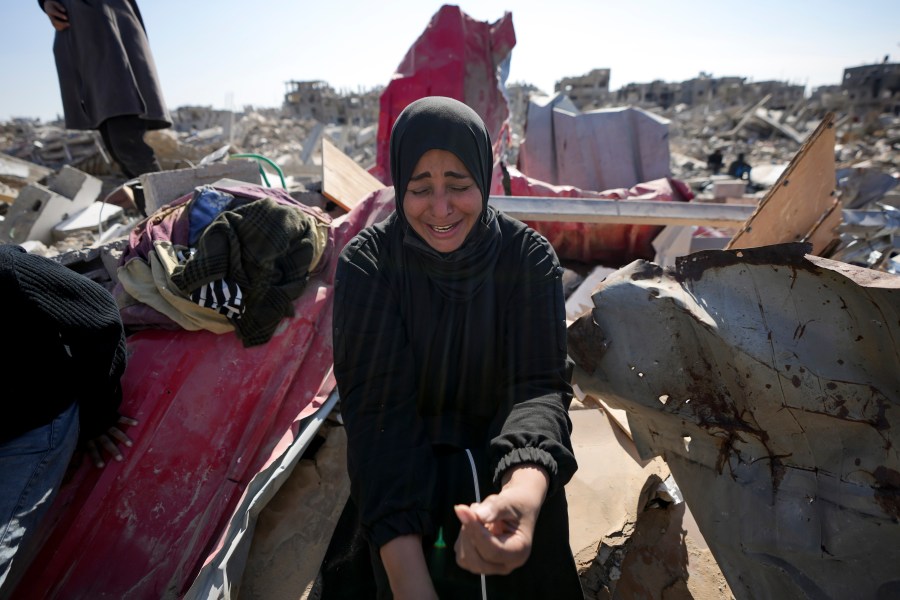
President Trump voiced the culmination of recent attacks on USAID last Friday, writing “CLOSE IT DOWN!” in a Truth Social post, citing unsubstantiated claims of corruption and fraud. If there was ever any doubt that the agenda was to shutter the agency, that’s dispelled.
In the days prior, Trump said his administration identified $50 million in USAID funding “being sent to Gaza to buy condoms for Hamas,” and that “they used them as a method of making bombs.” White House press secretary Karoline Leavitt made similar claims to justify freezing foreign aid. USAID funding was suspended, and the USAID.gov website has gone dark. USAID staff went from 10,000 worldwide to 611.
The condom claim is baseless. For the record, no such shipment of condoms to Gaza occurred, and birth control isn’t being turned into weapons (except politically).
Trump appeared to be referring to a USAID grant of $68 million to the International Medical Corp, which provides lifesaving care at two hospitals in Gaza. Not a penny of the grant was used for condoms or family planning. Nor did any of the contraceptive and condom shipments the Biden administration funded worldwide ($60.8 million total in fiscal 2023) go to Gaza. In fact, in the previous three years under Biden, USAID did not spend any money on condoms anywhere in the entire Middle East. (There was one shipment of contraceptive pills and injectables costing a total of $46,000 to Jordan.)
But behind the absurdity of the condom bomb claim lurks an insidious reality: the targeting of sexual and reproductive health and rights for destruction. Until recently, the United States was the world’s largest funder of such programs. With that aid in danger, global reproductive health will suffer, and people will die.
To be clear, contraceptives save lives, particularly in humanitarian crises. Sexual health and reproductive health needs do not cease to exist in emergency situations. In fact, they become greater. In conflict zones and refugee settings, access to sexual and reproductive health services and information gets severely disrupted. It’s not just about family planning; it’s also about reducing unsafe abortions, protecting survivors of sexual violence, and preventing maternal deaths. According to the organization rePROs Fight Back, “65 percent of maternal deaths, 50 percent of newborn deaths, and 51 percent of stillbirths occur in the context of humanitarian crisis.”
Gaza is no exception. UNICEF and the United Nations Population Fund estimate that “nearly 20,000 babies were born in Gaza during the first 105 days of the conflict” and “continue to be born at an estimated rate of 180 deliveries per day,” often in unimaginable conditions without proper medical care. Gaza’s rates of newborn deaths, miscarriages and stillbirths are extremely high. Miscarriage rates have increased 300 percent, in part due to inadequate medical care, displacement, psychological trauma and bombings.
Humanitarian crises heighten the risk of gender-based violence wherever they occur. But in Gaza, in addition to this risk for women in overcrowded and unsafe shelter settings, testimonies reveal Israeli forces use such violence as tools of dominance, including “beatings, threats of rape … forced nudity, strip searches … harassment” and killing of Palestinian women. A United Nations special rapporteur on violence against women and girls, Reem Alsalem, has warned of an unfolding genocide and its impact on women and girls since November.
International funding appeals rarely include family planning services for those living through humanitarian crises. Yet it’s an urgent life-or-death matter.
A growing body of evidence demonstrates the dire need to address sexual and reproductive health and rights and gender-based violence in humanitarian settings. Humanitarian relief agencies are increasingly recognizing they need workers skilled in these areas, functioning resource supply chains, and proper data collection and management. Robust, responsive SRHR and GBV programs are crucial from the onset of a crisis, and in this regard, yes, even condoms are important, and save lives. rePROs Fight Back states “Fulfilling the unmet need for contraception would cause a 29% reduction in global maternal mortality,” as well as “reduce the spread of [sexually transmitted infections] and prevent unintended pregnancies.”
Women and girls, including those who are displaced, have a right to bodily autonomy and self-determination. But by shutting down USAID and belittling SRHR with his “condoms as bombs” claim, Trump is fueling the perilous idea that SRHR and GBV programs are wasteful, suspect and a kind of cynical punchline.
Gaza is a prime example of why these programs are so vital. Sexual and reproductive humanitarian assistance saves lives. Shutting down USAID with glib, factually incorrect talking points will take them.
Maniza Habib is research associate at the Population Institute, a nonprofit based in Washington, D.C., that supports reproductive health and rights.












